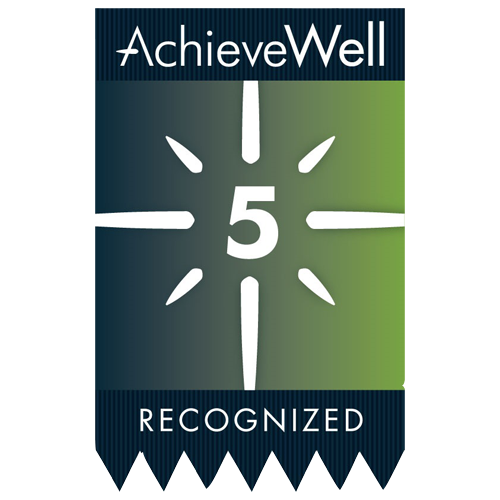Financial Health Programs
for Employees
Finding, hiring, and retaining productive employees is difficult in the best of times. When the economy is down or the labor market is especially tight due to things like a global pandemic, it can feel impossibly frustrating. Companies are always on the lookout for what they can do to sweeten the proverbial pot to attract and retain quality workers. This constant quest has led to the development of benefits and programs that improve the well-being of employees, not just in terms of physical health, but also financial health programs.
The Rise of Total Well-Being
Gallup scientists took a deep dive into what well-being means to people in 150 countries, covering 98% of the world’s population. What they uncovered were five primary concerns that are literally on everyone’s minds regardless of their faith, culture, or nationality, which can be described as follows:
- Career Well-Being: How you occupy your time or simply liking what you do every day.
- Social Well-Being: Having strong relationships and love in your life.
- Financial Well-Being: Effectively managing your economic life.
- Physical Well-Being: Having good health and enough daily energy to get things done.
- Community Well-Being: The sense of engagement you have with the area where you live.
The simple realization more companies are making is the deep connection that exists between all these spheres of well-being, but especially between financial health and physical health. After all, everyone knows a lot of the worst stress in the lives of so many people is all about money. Having happy, well-adjusted, productive employees in your workplace is about more than paying them well and providing great health benefits. Financial health programs for employees can help heal the negative impacts financial ill health has on people’s physical health.
Financial Health is More than Income
The interesting thing about addressing financial health is how it’s not as simple as just focusing on income. This is good news for employers who can’t just throw unlimited financial resources into employee compensation. What it’s about is financial security, and this concept extends well beyond the simple metric of income. This notion of financial security has a much deeper impact on overall well-being than income alone. And there is a surprising amount of good a company can do with financial health programs for employees that give them confidence and security in their current and future financial states.
The Financial Health Crisis
How does making employees financially healthier work? Keep in mind it’s not just about increasing compensation, though that may be one piece of an overall strategy around making sure employees are happy on the job, productive, and want to stay. It begins with understanding the degree to which financial well-being does impact overall well-being.
The novel coronavirus and COVID-19 pandemic turned everything upside down, and it left many people feeling especially vulnerable in their economic lives, as described in recent findings from the Pew Research Center:
“About three-in-ten US adults say they worry every day or almost every day about the amount of debt they have (30%) and their ability to save for retirement (29%). Roughly a quarter say they frequently worry about paying their bills (27%) and the cost of health care for them and their family (27%), and about one-in-five say they worry at least almost every day about paying their rent or mortgage (19%) or being able to buy enough food (18%).”
As you can imagine, those figures go up if you focus on black and Hispanic adults, or low-income people, or anyone who lost a job or took a pay cut during the worst of the pandemic.
Another thing to keep in mind is the complete lack of financial literacy in most formal education. Only 17 states require any kind of personal finance course as a part of the curriculum. When it comes to financial education of students, the schools of America have largely failed miserably to deliver. This lack of financial education carries right over into adulthood. The plain fact of the matter is this: Employers should get involved in financial education of employees because it matters, and workers are unlikely to get it anywhere else.
New Benefits: Financial Health Programs for Employees
Promoting financial wellness among employees is something that is making a lot of business sense to employers, especially in the face of such turmoil and uncertainty as people experienced and continue to experience because of the pandemic. Many people were worried before the pandemic about reaching their long-term financial goals, and many more are now concerned about that in the wake of the pandemic, and the ones who were worried before are even more worried now.
Helping employees make better financial decisions and achieve a greater sense of financial security will help reduce their stress and be more productive. Employers everywhere have discovered the benefits of workplace health and wellness programs to improve the physical health of employees, and the rise of financial health programs for employees follows the exact same logic. Some employers worry about the legal risk of financial wellness programs, but this can be minimized by ensuring any education provided is guidance as opposed to specific personal financial advice that is best left to licensed professionals (although that could be part of a company’s financial health programming).
Investing in Expanded Employee Wellness
Companies can achieve the same kinds of benefits they experience with health-related wellness programs by offering financial health programs from employees. When workers see their employer investing in both their physical well-being as well as their financial well-being, those workers will have higher morale, loyalty, satisfaction, and productivity. And when the financial health programming helps them achieve greater financial security, then they will be less stressed out and experience less illness, which means less absenteeism and lost productivity. This is about investing in benefits and programs that address more of total well-being than has been traditional in most workplaces.
An initial easy place to start is in assisting employees to make sound decisions about the benefits programs offered at your company. Help them understand and decide which benefits programs may make sense for them to enroll in (you’d be surprised how many of your employees are confused when it comes to those choices). Provide them with more information and guidance on how to make the most of the company 401k plan by explaining the tax advantages, the employer match, and how it can help form lifelong saving habits that will greatly benefit their retirement savings.
Beyond those basics, you’ll want to work with a trusted partner who can deliver effective financial health programs for employees, and LHD can assist you in making that happen. Feel free to get in touch by calling 371.751.7049 or emailing to lhdbenefits@lhdbenefits.com. We are here to help your company achieve better well-being of your workforce.





